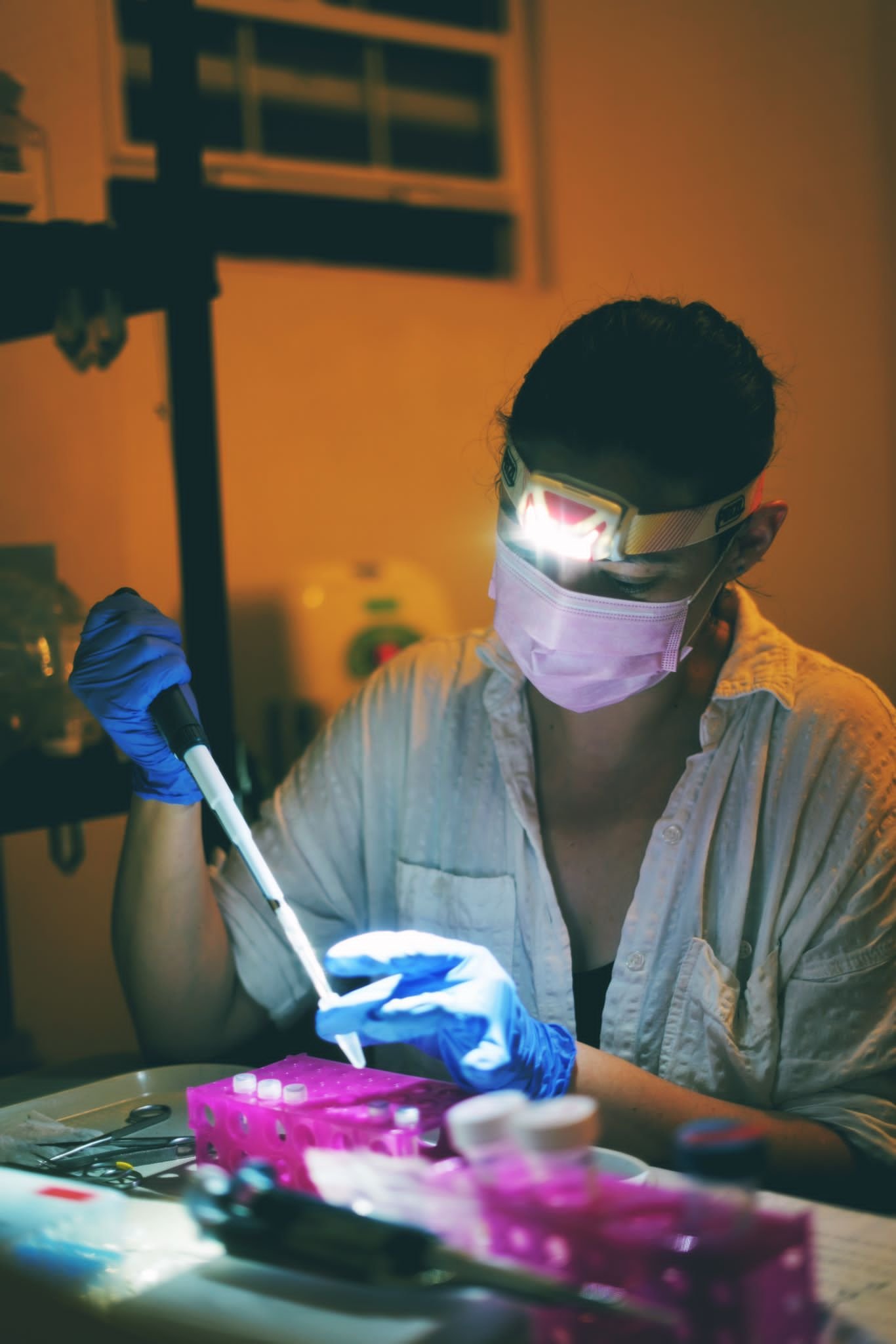
Jasmin Camacho, Ph.D.
Bat Biology
Anatomy & Physiology
Molecular Metabolism
Evolutionary Developmental Biology
Bioinspired health
About me: As an evolutionary biologist, I am interested in exploring extreme mammalian adaptations for insights into organismal features that might become informative targets for repairing and protecting human health. I received my PhD in Harvard's Organismic and Evolutionary Biology Program in the lab of Dr. Arhat Abzhanov and Dr. Clifford Tabin. I am currently performing research at the Stowers Institute for Medical Research as a Hanna Gray fellow. I am supported by the HHMI, BWF, and NSF.
Research Interests: My research focuses on understanding the origins of adaptations that enhance life—from their single-cell embryonic beginnings to the cultural stories that shape our understanding of these transformative traits. My long-term aim is to uncover the cellular and molecular mechanisms implicated in the adaptations of extraordinary mammals- bats. My current research is focused on nectar bat physiology and cellular metabolism. Understanding bats can help us restore metabolic balance against hyperglycemia, a condition associated with diabetes mellitus, a metabolic disease for which there is no cure.
Higher Education Advocacy: As a first-generation Chicana and Indigenous scholar from an underserved (low-income) community, I understand firsthand the transformative power of education, and I am committed to advocating for equitable access to higher education. I was born and raised in Salinas, California, the hometown of author John Steinbeck, who often depicted the agricultural life and struggles of the region, which haven’t changed much today, and home to one of the most violent gangs in the U.S., the Nuestra Familia. This environment profoundly affected my family as well—my mother dropped out of school and later became entangled in addiction as drugs trafficked by these gangs spread through our community. Despite these harsh realities, I was also surrounded by a tight-knit family and a community rich in culture, strength, and resilience. It was through the strength of these bonds, and a quiet resolve born from the hardships that shaped my life, that I sought education as my way out—a path not just to escape poverty, but to break the cycle itself and forge a future rich with possibility. I aim to serve as a role model and mentor to students from diverse backgrounds in their pursuit of higher education. My goal is to inspire others to realize their potential and break the barriers that stand in their way.
Inclusive Science
The 'Cihuatl Bat Biology Lab' is named in honor of my Chicana and Indigenous (Nahua and Otomí) heritage. The word cihuatl (pronounced see-wah-tl) means 'woman' in Nahuatl. It reflects both the strength and cultural identity I bring to my work as a scientist. By integrating this cultural significance into the lab, I aim to create an inclusive environment that values diversity in thought, experience, and identity. I am also active with SACNAS (Society for Advancement of Chicanos/Hispanics and Native Americans in Science), an organization that champions inclusivity in the scientific community. My training at UC Davis, which is now recognized as an emerging Hispanic-Serving Institution, has further shaped my commitment to fostering opportunities for underrepresented groups in science.





